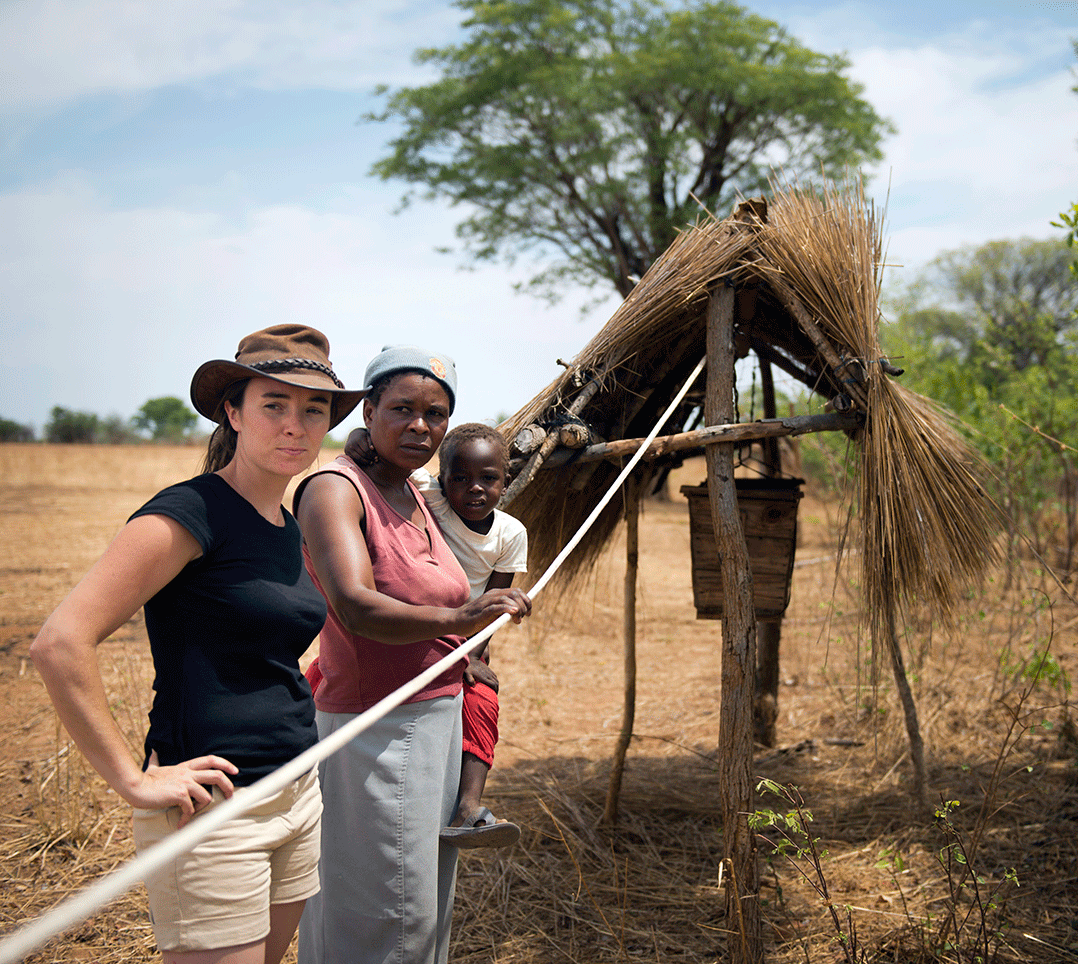Beehive fence protects crops from African elephants
Sound of honeybees scares elephants away and prevents them being shot by farmers

African elephants have always been scared of honeybees, despite their difference in size. Tracey Brighten, in a recent article for The News Hub, reported on a researcher at Oxford University that has decided to use this irrational fear to protect elephants, and the crops they are trying to eat.
African honeybees are a particularly pugnacious species. If they manage to sting in sensitive areas, the pain can be agonising for elephants.
Researcher Dr Lucy King documented the agitated relationship between elephants and bees on film, playing the sound of bees to elephant herds, and watching them disperse:
Habitat loss is a serious threat to elephant populations. The herds have less and less space to roam, so end up raiding the agricultural land of local villages for food.
These raids put the elephants at risk of being killed by frustrated local farmers, or attacking people who get in their way. The animals could once be driven away from crops by loud noises and fires, but these deterrents no longer work.
Building electric fences is prohibitively expensive for farmers, so using lines of beehives as fencing is a cheaper and easier option. They are made using a string of wooden beehives hanging on wires across a stretch of land. If the wire is knocked, the attached beehives move, disturbing the honeybees and scaring away the elephants.
King set up the Elephant and Bees Research Project, a collaboration between Save the Elephants, Oxford University and Disney’s Animal Kingdom, in order to tackle human-elephant conflict. It is now based at Sagalla in Kenya, next to Tsavo East National Park. King and her team have also assisted beehive fence projects in Mozambique, Botswana, Tanzania, and Uganda.
Despite the international ivory trade ban in 1989, the African elephant population has been shrinking dramatically, with hundreds of thousands killed in the last decade. If this rate of poaching continues, the African elephant will be extinct within our lifetimes.
Join our commenting forum
Join thought-provoking conversations, follow other Independent readers and see their replies
Comments
Bookmark popover
Removed from bookmarks